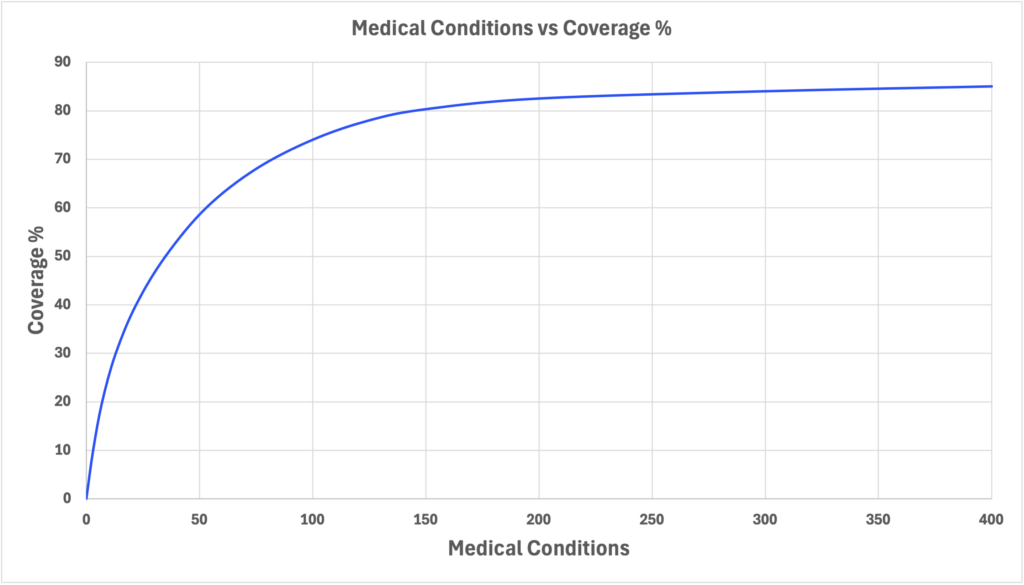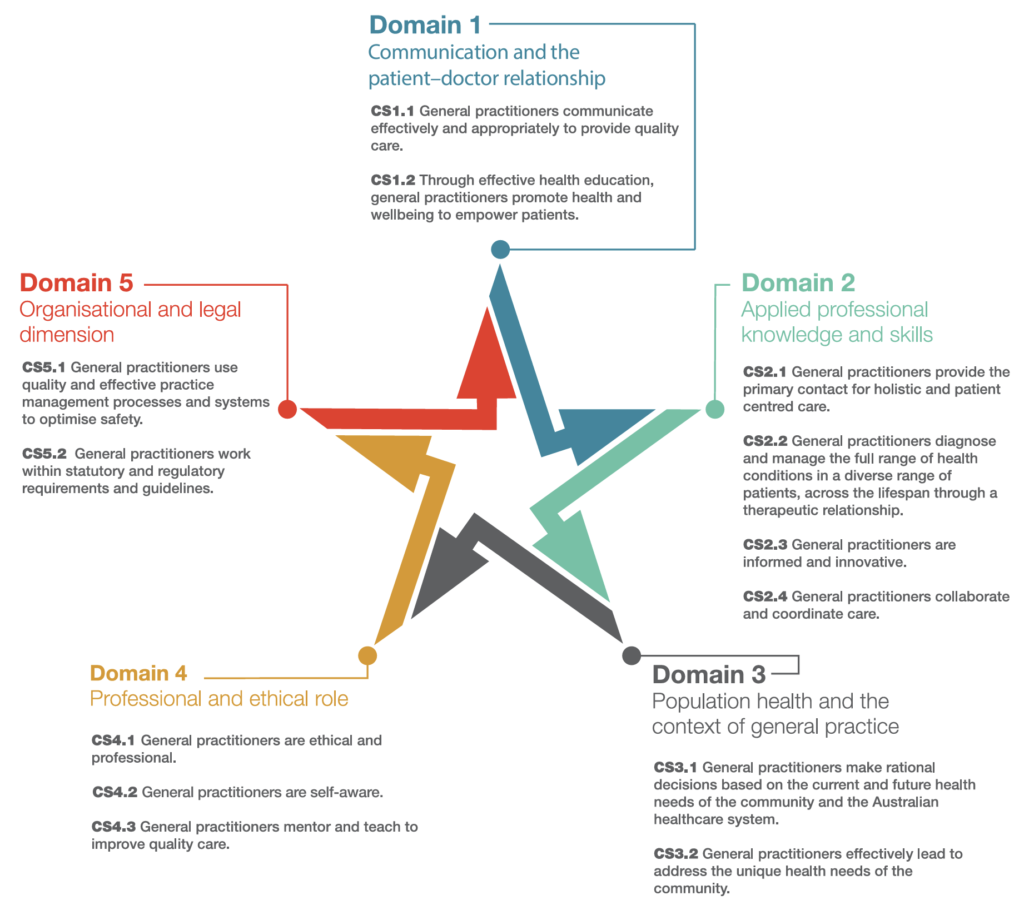Prepare for your GP Exams
If you are studying for the RACGP AKT KFP CCE GP exams and prefer to work smarter rather than harder, you are almost certainly in the right place. Our comprehensive preparation guide can help you boost your chances of success so you can ace your GP exams and pass the first time around.
Why Us?
The entire focus of this website is to help you pass your GP exams. You are a doctor, so we know you’re brighter than average. In a world where information is free, there is no doubt you could find every fact on this website via your own independent research… given enough time. Our goal here is to save you time and focus your study on high-yield topics – the specific topics that appear commonly on GP exams.
We are all time-constrained and have other commitments, from work to family to hobbies and interests. It is indisputable that you can only allocate so much time to studying for your GP exams. On that note, here is a clock showing you the maximum time you have available for study if you need to work 40 hours a week and sleep 8 hours a night.
A quick Google search will reveal a range of websites offering resources to help you pass the fellowship exams. A curated list of these websites can be found on our External Resources page, along with some commentary.
Our offer here is simple: You need the knowledge commonly examined and the skills to deliver that knowledge correctly. We know what that is and are happy to share it with you.
Study Plan
There is no getting around the fact that you need to put in the work. Understanding your time constraints is a vital first step. Creating a plan is about doing what has to be done within your time constraints.
The topics outlined below represent how I made a plan to pass by working smarter, not harder. Your plan will differ, but you should sketch one out. Your plan provides you with a way to plot your progress on what can be a long and lonely journey. It provides checkpoints to see how you are doing, and if you are tracking well, it justifies having a guilt-free night out or even a day off!
Failing to plan, is planning to fail
~ Anon
Do yourself a favour and make a plan.
Knowledge Width
General practice is a huge field, and it’s fair to say it is impossible for any single doctor, even the legendary Professor John Murtagh, to be an expert in all of it. Therefore, you should make well-informed decisions about how wide (the subjects) and how deep (the detail) to study.
Fortunately for candidates, exam topics that come up frequently form a reasonable mirror of day-to-day general practice. Unfortunately, your personal day-to-day practice will not cover the full spectrum of presentations. Don’t worry; help is to hand. Between 1998 and 2016, the University of Sydney ran a project called BEACH (Bettering the Evaluation And Care of Health).
BEACH is the most valid, reliable general practitioner (GP) dataset in Australia, with almost 1.8 million GP-patient encounter records from 1998 to 2016
BEACH Website
Analysing 1.8 million records takes time and effort, but don’t worry. This analysis has been done for you and can be found under the BEACH Data menu item in the left sidebar. Here, you will find my initial analysis – BEACH 1.0, then a series of more complex analyses in BEACH 2.0 and BEACH 3.0 that end with the top 200 presentations in General Practice in BEACH 4.0. A big shout out to Dr Georgia Cooke for her help with this. The reason various versions exist is that different data aggregation logic leads to minor variations in the data.
Why is an analysis of BEACH important to you and your study? It is important because:
- The top 3 conditions cover 10% of all GP presentations.
- The top 7 conditions cover 20% of all GP presentations.
- The top 13 conditions cover 30% of all GP presentations.
- The top 22 conditions cover 40% of all GP presentations.
- The top 35 conditions cover 50% of all GP presentations.
- The top 53 conditions cover 60% of all GP presentations.

Given the old ICD-9 (International Classification of Diseases, Revision 9) lists 14,000 diseases and the current ICD-10 lists 55,000, it is entirely impractical to study everything, so don’t stress about it. Focus on the simple fact that common things happen commonly in both the real world and the alternate reality that is the RACGP/ACRRM exams. Given that ID-10 includes classics like these:
V97.33XD: Sucked into jet engine, subsequent encounter.
The 16 most absurd ICD-10 codes
W61.62XD: Struck by duck, subsequent encounter.
Y93.D: V91.07XD: Burn due to water-skis on fire, subsequent encounter.
You can relax, safe in the knowledge that the 54,000+ things you have deliberately chosen not to study are unlikely to ever come up in the exams or real life.
Knowledge Depth
The irony inherent in the notion that General Practice is a Specialty seems to be lost on both the RACGP and ACRRM. As specialist generalists, we GPs do not need to know every specialist area to the same depth as a specialist specialist. This raises the critical point of depth of knowledge. How much is enough?
Given that hypertension is the #1 GP presentation, you would be unwise not to learn this topic in depth. It is going to be on your exams. While IHD is only #41 on this common conditions list, the correct identification and management of an AMI is a life-and-death thing and one of the common emergency presentations you need to know how to manage, and not just because it is such a popular exam question!
You’re smart; otherwise, you would not have gotten into medicine or graduated. Spend your depth time sensibly on high-yield topics that need depth. You are making a poor investment of your precious study time by adding depth to exciting topics with a low probability of appearing on your exams. There will be plenty of time for CPD later.
Knowledge Gaps
Earlier, we observed that the topics that come up frequently in exams form a reasonable mirror of day-to-day general practice. We then noted that your personal day-to-day practice will not cover the full spectrum of presentations. For example, of the ~1 million people who identify as ATSI, around 137,000 live in very remote areas. These people are cared for by < 100 GPs, so you are highly likely to have a glaring knowledge gap here. Because this topic comes up routinely in exams, you need to fix that gap, regardless of how applicable this knowledge is to your current or future practice aspirations.
As a male doctor, I do more men’s health than women’s health. It is no great surprise that I identified women’s health as a knowledge gap and made fixing that gap part of my exam preparation.
Depending on your background and experience, you, too, will have knowledge gaps. Part of your preparation is to identify these gaps and fix them.
While studying areas you know well is comforting, you need to step outside your comfort zone and learn the other stuff that will appear on your exams. You also need to remember that significant parts of the exam require knowledge of topics outside of pure applied medicine. RACGP identifies the 5 domains shown below, so it’s essential to consider any knowledge gaps you may have outside of the medical topics listed in BEACH – this knowledge is Domain 2. Identifying your domain knowledge gaps and filling them in with at least a basic understanding makes good sense.

Other Resources
This website is far from the only resource you might choose to use. On the External Resources page, you will find links to other resources I found useful during my exam preparation. Some are free, and some require payment.

